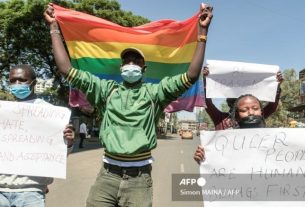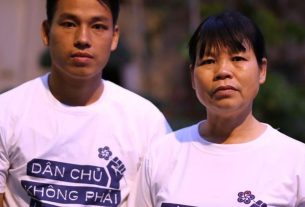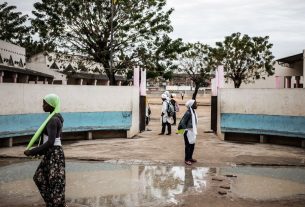President of the National Council for Human Rights Moushira Khattab during a meeting of the Egyptian National Council for Human rights (Photo: NCHR)
The case of Shenouda has stirred controversy late last year after authorities decided to place the boy in an orphanage after DNA tests revealed that the Christian parents, with whom he lived his entire life, are not his biological parents.
The childless parents who raised the child said that they found the boy, who was only days old, in a church in Cairo and that they named him Shanouda Farouk Fawzy after the adoptive father.
The boy was later handed to an orphanage where he was renamed Yusuf. The adoptive parents have filed a lawsuit to regain custody of the child and reverse his conversion to Islam.
Adoption is prohibited by Egyptian law as it contradicts Islamic Sharia. However, an alternative care system for abandoned children – which allows orphans to be raised as part of a foster family – exists. This system is referred to in Arabic as “kafala”.
Furthermore, the Egyptian law does not regulate the religion of children with unidentified parents. However, the Ministry of Interior’s civil status department customarily attributes them to Islam after picking a full name for them.
The NCHR intervenes
The NCHR said it would assign its legislative committee to explore ways to be involved in the child’s lawsuit based on the relevant laws. It also said that it would suggest legislative and procedural amendments to both the parliament and the government.
The council will also coordinate with all relevant parties to make sure that the case ends in a way that guarantees the best interest of Shenouda, which is bringing the child back to his family, the statement said.
“It is the right of the child at this early age to live in a family, not in an orphanage,” the NCHR stressed.
The council called for all judicial authorities working on the case as well as the Ministry of Social Solidarity to make sure that they take the child’s best interest into account in all decisions related to the child and to ensure that their decisions are in line with the Constitution and the Child Law 12/1996.
The NCHR called for returning the child to the family until the lawsuit is decided.
The council asserted that taking the child from the family that he lived with during his first five years and placing him in an orphanage is in contradiction to article 80 of the Constitution, the Child Law, the UN Convention on the Rights of the Child, and standards of children’s rights.
“The council affirms that the humanitarian nature of this situation requires us to act in the interest of the child, to ensure his rights, and to show mercy until the case is decided,” the statement said.
The lawsuit “should not be an obstacle to the child’s enjoyment of a decent life with the family in which he was raised for a full five years,” the statement added.
President of the NCHR Moushira Khattab wrote an opinion in December under the title “Shanouda’s rights as a child,” where she stressed the need to underscore how the constitutional provisions are framed in a way that gives priority to the role of the family in the life of any child.
Khattab expressed hopes that Shenouda can “celebrate this holy season back home in the embrace of the family who has loved and cared for him all these years.”
Short link:



